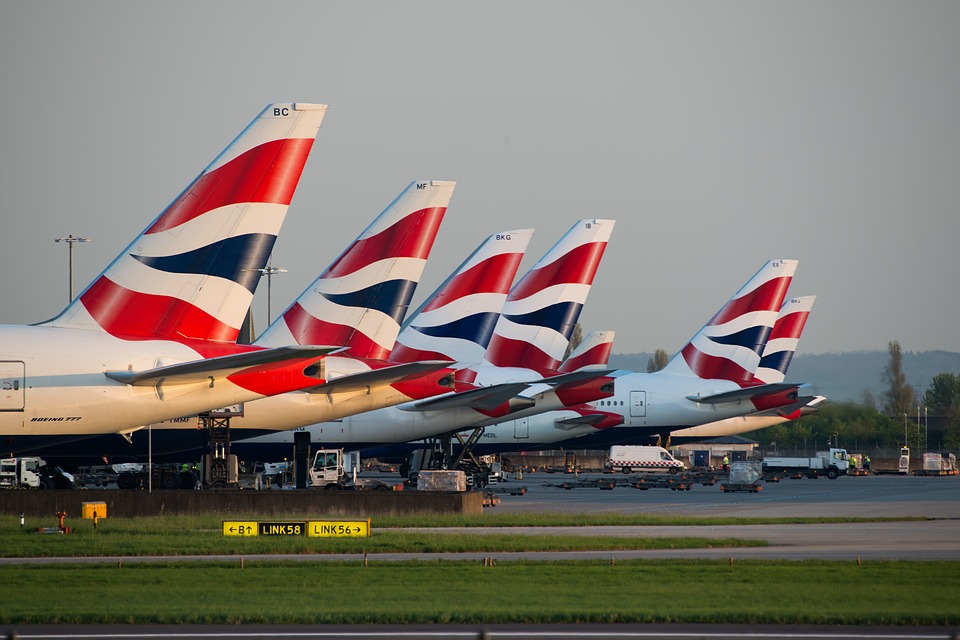Manufacturing and industry in Britain is set to be decimated by the pandemic, Brexit, and the crisis of capitalism. Union leaders are urging the Tories to save jobs. But instead of pleading, the union movement must organise and fight.
The coronavirus crisis is eating its way into British industry. As a result, the bosses are going on the offensive against workers and the trade unions.
The proposed decimation of British Airways staff, for example, has shown that the capitalists are set on attacking workers and their organisations, in order to drive down pay and conditions, and boost profits.
Workers under attack
 In this context, Len McCluskey has spoken out on the state of British manufacturing. In a piece in the Guardian, the Unite general secretary focuses on the so-called “job retention scheme” (JRS) – a policy that the Tories have adopted in a desperate attempt to avoid the economy plunging into freefall.
In this context, Len McCluskey has spoken out on the state of British manufacturing. In a piece in the Guardian, the Unite general secretary focuses on the so-called “job retention scheme” (JRS) – a policy that the Tories have adopted in a desperate attempt to avoid the economy plunging into freefall.
The Unite leader notes that mass unemployment is still on the cards, due to the effect of the lockdown on many businesses, and the Tory pledge to gradually withdraw the JRS.
In response, McCluskey calls on Chancellor Rishi Sunak to step away from “taking that sharp right turn”. Instead, he proposes that the government should get together with the trade unions – Unite included – to plan out a way to avoid a catastrophic loss of jobs for British workers.
Jobs in manufacturing are clearly in serious danger. The aviation industry has seen a particularly large share of proposed cuts. Rolls Royce, for example, has declared their intention to cut 9,000 jobs from their civil aerospace division.
Similarly, small- and medium-sized manufacturers across the country have reported massive drops in demand, despite shifts to producing much-needed PPE.
This process is also being seen internationally. In France, car manufacturer Renault has said it will be sacking 15,000 workers globally. Nissan has declared that similar sackings are in the pipeline.
Turn to trade unions
These job losses will be devastating to working-class communities. And it’s 100% right of McCluskey to highlight the effect that this will have on Unite members.
However, it’s not enough to wring our hands at such crises. The trade unions were built for a purpose: not to act as a neutral arbiter between workers and the bosses – but to organise workers, and give them the ability and confidence to fight back against exactly these kind of attacks.
According to official TUC figures, around 100,000 people have joined trade unions since the start of the year. The vast majority of these have been since the pandemic hit.
I’m delighted to see such a huge surge in trade union membership over the last year. But, as the @The_TUC rightly point out, we must do much more to unionise young, precarious workers in the private sector. There is power in the union! https://t.co/OeBcT2BYDG
— Mick Whitley MP (@MickWhitleyMP) June 1, 2020
The cause could not be more clear. Workers are looking for a way out of the crisis. They are looking for a way to defend themselves against the blows they know the bosses are aiming at them. And they have turned to the trade union front in order to do so.
Weakness invites aggression
In this context, displaying passivity is criminal. It signals to the bosses that their attacks will fall on people who can’t defend themselves properly. As such, it will encourage the capitalists to go even further in their efforts to make workers pay, as they look to boost profits. Weakness invites aggression.
Calling upon the Tory Chancellor, Rishi Sunak, to defend unionised jobs is no solution. Meetings between the unions, big business and the government are not a way forward. In effect, McCluskey is asking the Tories not to be the Tories; to side with workers instead of the capitalist class that the Tory Party exists to defend and represent. You might as well beg your cat to consider not killing the mouse it’s playing with, for all the good this will do.
Appealing to the Tories’ mythical ‘better nature’ didn’t save Teesside Steelworks in Redcar, for example, when it was faced with closure. When the anarchy of capitalism threatens industries, cries for a Tory government to step in and help will fall on deaf ears.
Militant example
There is another path that could be taken, however. Unite is one of the largest trade unions in the country. And unlike others it still has a strong presence in British industry. With a membership of over a million, Unite does not need to beg.
Workers at the Harland and Wolff shipyard in Belfast have shown the way forward. When it was announced that the site was due to close, the shipyard workers – Unite members – did not quietly await their fate. Instead, they occupied their workplace to prevent it from being closed, demanding nationalisation to save their jobs.
“As well as safeguarding their own futures, the workers have sent a message that will be heard across Northern Ireland” Unite regional officer Susan Fitzgerald | Harland and Wolff: Belfast shipyard bought by UK firm https://t.co/6240MrVg2O #SaveOurShipyard
— Unite the union: join a union (@unitetheunion) October 1, 2019
This militant tactic immediately won the sympathy and support of working-class communities across Belfast and beyond. Food and hot drinks were brought on a daily basis by locals showing solidarity. And retired workers who’d once been employed at the shipyard rallied to the cause, joining their old comrades in the occupation.
Rather than being nationalised, the shipyard was eventually saved when a private investor was found. But the fact remains that it is still fully operational today, rather than sitting dormant after the asset-stripping vultures have had their fill. And that is fully down to the courage and steadfastness of the workers in the action they took.
Such courage is not unique to shipyard workers. It can be found in every workplace. And it can be as effective everywhere as it was in Belfast.
Get off our knees
Instead of begging the Tories for scraps, the trade union leaders must show faith in their members’ ability to fight.
Unite must build for a militant campaign of struggle against job losses. Every option must be on the table – including occupations by workers, and co-ordinated strikes in related industries – in the efforts to defend the workers and their jobs.
The whole weight of the union must be brought to bear in such a campaign. Sections of Unite and the TUC that aren’t directly involved should spread the word across the labour movement. And pressure must be put on the Labour Party leaders to come out in support of demands for nationalisation and workers’ control.
In the final analysis, it’s the working class who create the wealth that lines the pockets of the capitalists. Our class is perfectly capable of winning the fight to control that wealth. But this will not come from begging for crumbs. We must get off our knees and struggle for the whole bakery.






